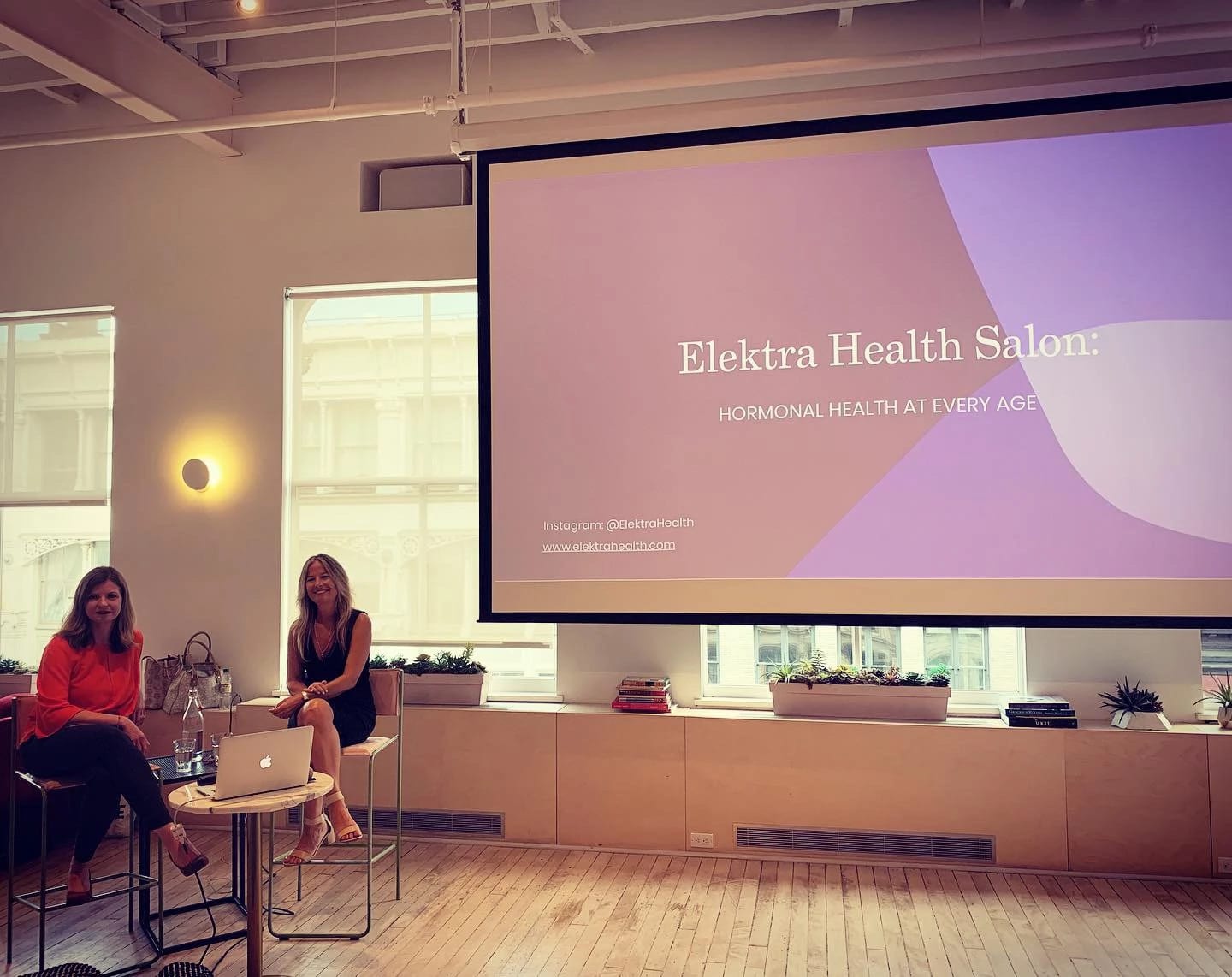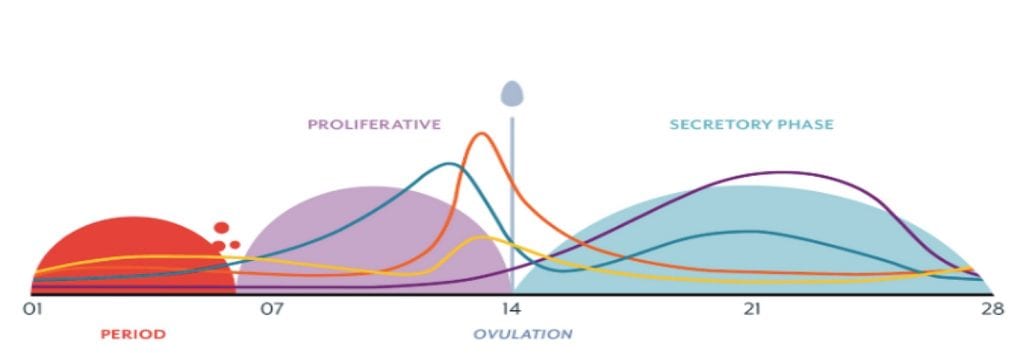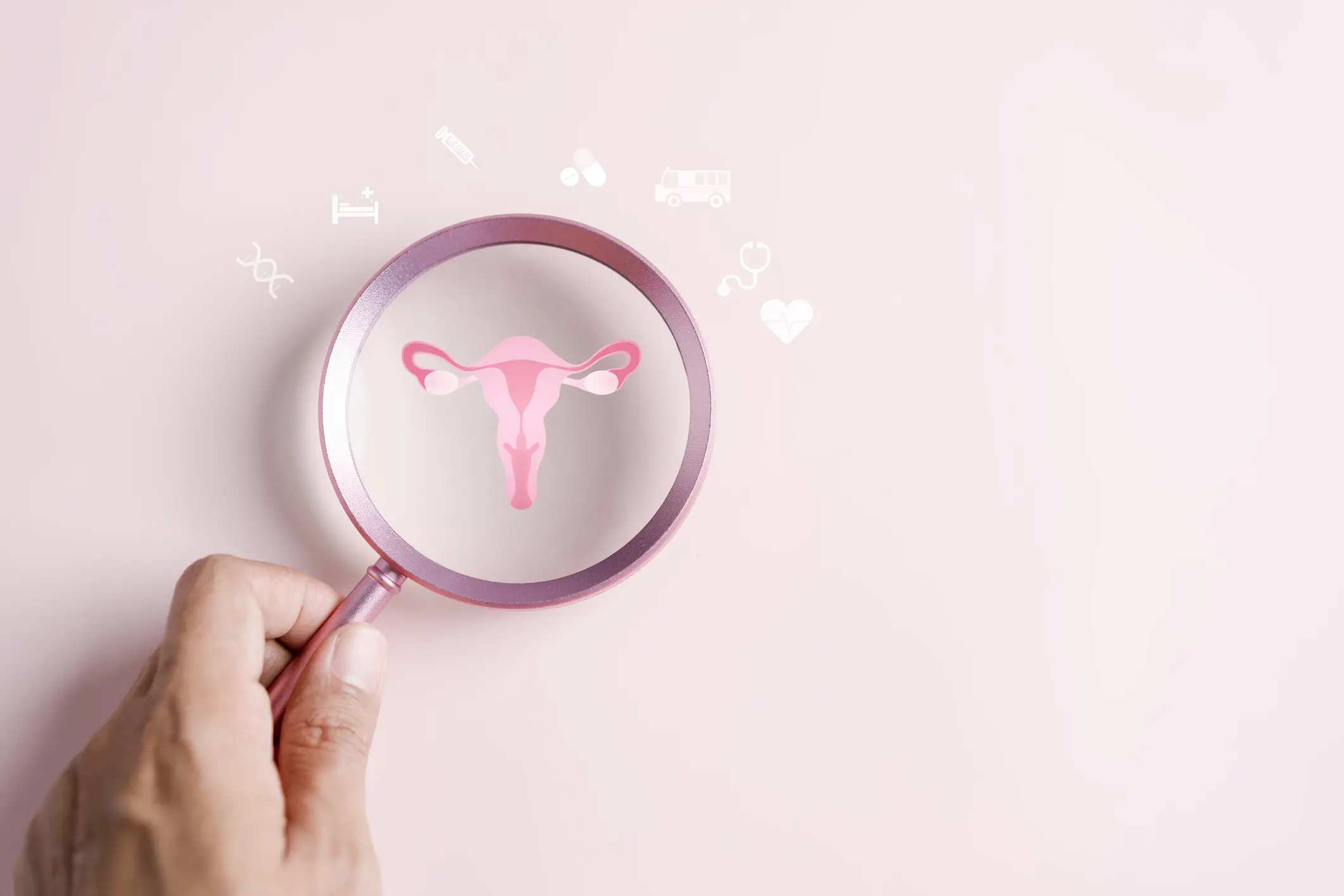
Published on Aug 01, 2019
Last modified on Mar 01, 2021
Hormonal Health at Every Age: Key Takeaways from the July Elektra Health Salon Event
3 min read

Elektra experts Dr. Anna Barbieri and registered dietitian Alenka Ravnik-List on stage at The Wing
The average doctor’s visit in the United States lasts 12 minutes, which means by the time the doctor has checked your vitals and run through her standard checkup checklist, it’s time to hit the road. With such little time for doctors to have open-ended conversations with their patients, no wonder so many women are left in the dark about their hormonal health until something goes wrong.
At Elektra, we’re hell bent on bridging the doctor-patient relationship by providing top-notch medical expertise and resources to women interested in taking control of their hormonal health. Which is why we were so excited to co-host our Elektra Salon event Hormonal Health at Every Age with The Wing Soho (NYC) community last week. For those of you who missed it, we’ve put together a short list of the key takeaways & learnings shared by Elektra experts Dr. Anna Barbieri, MD, FACOG, Assistant Clinical Professor at Mount Sinai Hospital and registered dietitian and nutritionist Alenka Ravnik-List, MS, RD, CDE.
From childhood to post-menopause: read on for tips and tricks every woman should keep in mind for their hormonal health journey!

Graph from the speaker’s presentation showing a woman’s estrogen levels over time
Childhood & Puberty: Model good behavior for your daughters

Alenka Ravnik-List: Although hormones are quiet in adolescence, it’s important to remember that childhood habits are the building blocks for hormonal health down the road. 18% of American children have been diagnosed with childhood obesity, which has been known to lead to hormonal issues down the road. Eating habits – especially portion sizes – learned in childhood have lifelong impact.
Dr. Anna Barbieri: Spoiler alert: hormones during puberty are unpredictable. While a parent may not be able to control the hormonal health (or attitude) of their daughter, what you can control is how you’re modeling good behavior around diet and nutrition.
Alenka’s Action Tip: This is for you parents. Eat together as a family. And get your children involved in making meals with you. Cooking with nutrient-rich foods has been proven to increase the likelihood that your children will enjoy healthy eating in the future.

Mapping the four key reproductive hormones (estrogen, progesterone, FSH, LH) throughout the menstrual cycle
Dr. Barbieri: Regular periods is a sign that hormonal health is on track, but remember that the “normal” range when it comes to periods is much broader than most women believe: anything within a 21 to 35 days cycle length is considered “regular”. Many doctors label periods as “irregular” and prescribe birth control as a one-size-fits-all solution. While birth control can be a benefit to many women, trust your gut. If you feel there’s a deeper underlying issue, don’t be afraid to ask for more information or tests. Keep in mind that a woman’s hormonal health is impacted by many factors: genetics, weight, diet, sleep, stress, illness and autoimmune disorders.
Alenka Ravnik-List: While it’s tempting to focus on the greatest hits reproductive hormones such as estrogen and progesterone during your fertile years, remember to keep an eye on your insulin levels. You can keep insulin hormone levels balanced by choosing carbohydrates wisely. If you’re going to eat carbs, it is best to select low glycemic index carbs, such as fruits and vegetables, and pair them with a protein or a healthy fat. Also, being active for at least 15 minutes after dinner – even something as simple as doing dishes – can help maintain a proper insulin balance.
Perimenopause: Know your symptoms and solutions
Dr. Barbieri: When women enter perimenopause, their hormones act in unpredictable ways. Almost like a second puberty. The best way to stay healthy during perimenopause is to stay informed. Know what’s a symptom of perimenopause and what’s not (see chart) – if you find yourself experiencing symptoms in the “Not” column, contact your provider for an appointment.

Alenka’s Action Tip: Fitness at this stage is key to health, especially as women are prone to losing muscle mass during perimenopause as a result of decreasing estrogen levels. Weight training exercise, varying your workouts, and living an active, everyday life can help alleviate hormonal symptoms. It’s also important to keep your gut healthy through a combination of:
- High fiber foods (Nuts, seeds, legumes, veggies, whole grains, avocado)
- Probiotic foods (Yogurt, kefir, raw sauerkraut, kombucha, kimchi )
- Healthy fats: Olive oil, avocado, nuts seeds, Omega 3 rich foods (salmon, sardines, chia)
- Phytoestrogens including flaxseed
Dr. Barbieri: During menopause, reproductive hormones stabilize at lower levels, which makes non-reproductive hormones more important for bone, heart, and brain health.
Alenka’s Action Tip: This is a vitally important time for women nutrition-wise. Your body needs more of certain vitamins and nutrients such as calcium, vitamin D and magnesium, and less calories. Keep in mind that after menopause your stomach acid production is typically reduced, which can compromise Vitamin B12 absorption. Counteract this with B12-rich foods or supplements.
Updated: Sep 25, 2019


